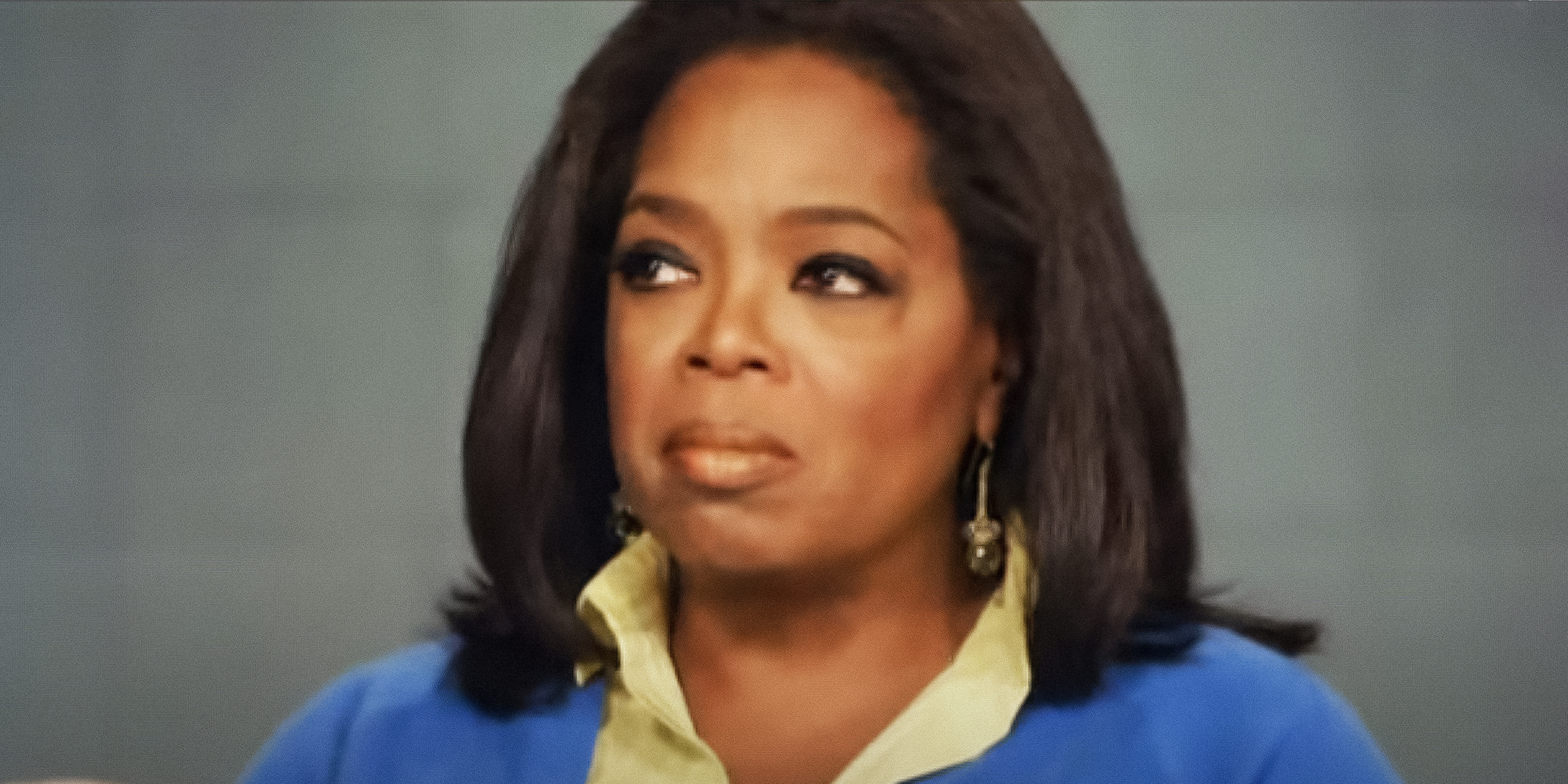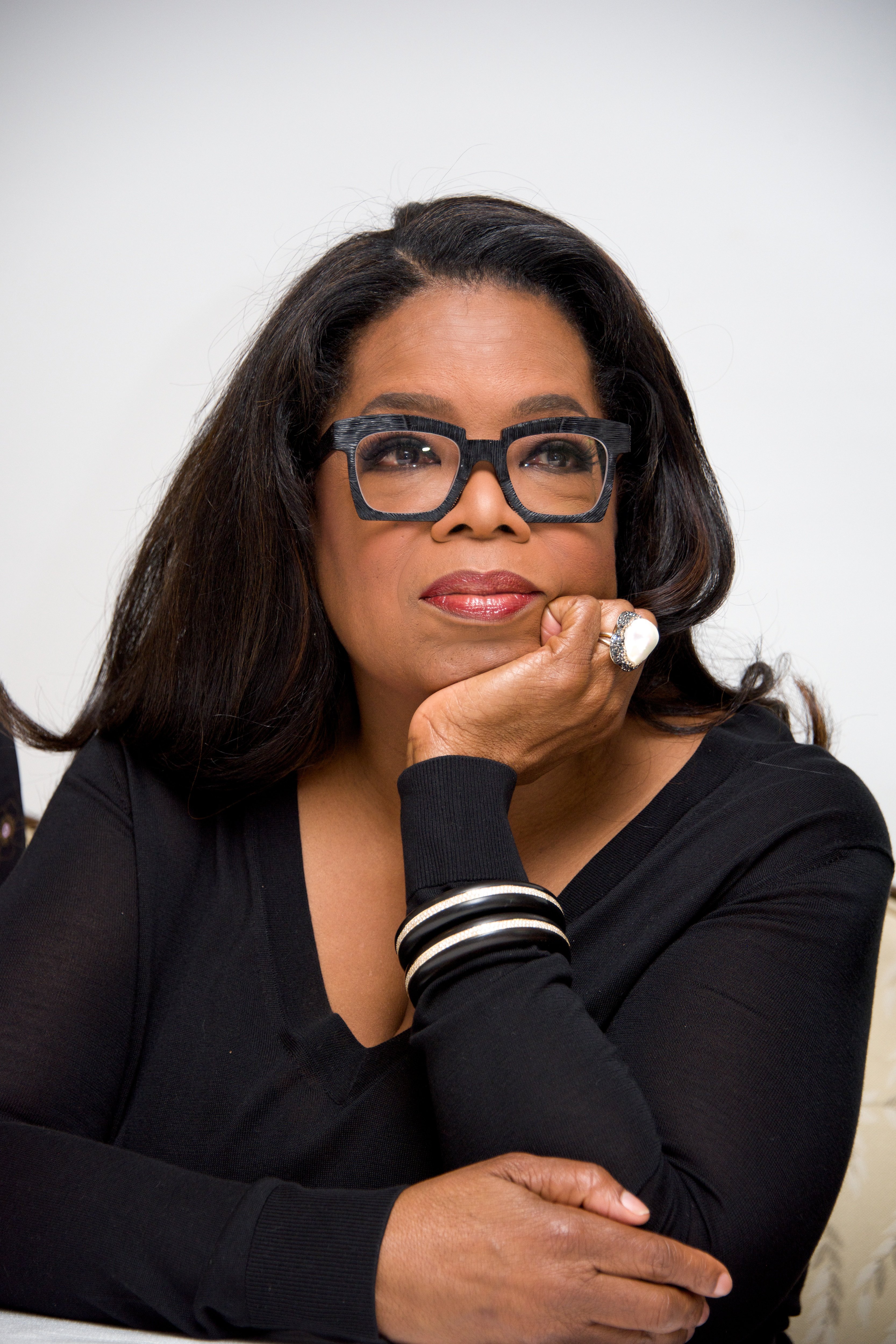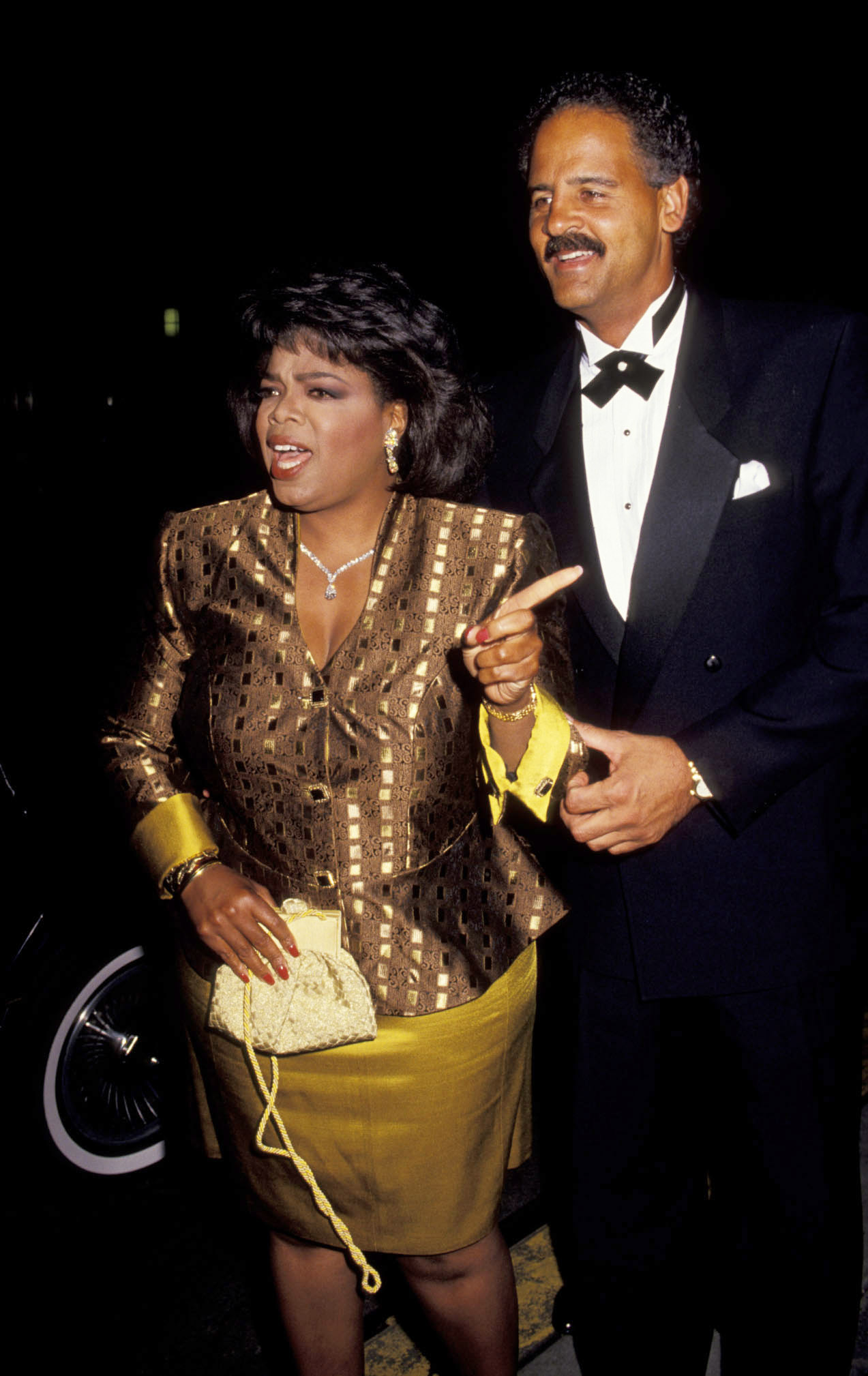
Oprah Winfrey Hid Her Pregnancy & Gave Birth at 14, but Today, She Has ‘Daughters’ – Her Story
Oprah Winfrey once faced a moment that nearly changed the course of her life forever. At 14, she stood in a detention home, believing she would be labeled a “bad girl” for the rest of her life. But an unexpected turn of events led her on a different path—one that would define her future.
Winfrey, now 71, is one of the most influential women in media, known for her groundbreaking talk show and philanthropy. But long before she built her empire, she endured a childhood filled with difficulties. Raised in poverty, she experienced mistreatment from an early age and was left to navigate the consequences alone.
At 14, she discovered she was pregnant. Fearful of what would happen if anyone found out, she hid the pregnancy for seven months. But when the truth was revealed, she was nearly sent away. Instead, fate intervened, and a single moment changed the trajectory of her life.
Winfrey’s Secret Pregnancy and the Baby She Lost
Winfrey’s early years were marked by trauma. She was sexually abused starting at the age of nine and continued to endure it for several years. At 14, she became pregnant as a result of that abuse, but she kept it a secret, refusing to acknowledge what was happening.
She later described feeling detached from the pregnancy, saying, “I say ‘the baby’ because I was so disassociated; I never felt like it was my baby.” She concealed the pregnancy for seven months, but eventually, her mother found out.
Believing her daughter needed to be disciplined, she attempted to send her to a detention home. As Winfrey sat there, waiting to be processed, she looked around at the other girls and thought, “Now I am officially a bad girl.”
But then, something unexpected happened—a woman told her mother, “I’m sorry, Miss Lee, but there’s not enough room on our docket for your daughter. You’ll have to come back in two weeks.” That moment changed everything.
Instead of being placed in the facility, Winfrey was sent to live with her father in Nashville, which she later credited as the turning point in her life. Shortly after, she gave birth, but the baby did not survive. Winfrey recalled how her father used the moment to encourage her.
“This is your second chance. This is your opportunity to seize this moment and make something of your life,” he said to her. She took those words to heart, understanding that she had been given another chance to change her future.

Oprah Winfrey at the “Greenleaf” Press Conference held at the Four Seasons Hotel on September 26, 2016 in Beverly Hills, California. | Source: Getty Images
Betrayal: When Her Secret Was Exposed to the World
For years, Winfrey kept her teenage pregnancy a secret, sharing it only with her closest family and friends. She feared that if the truth became public, it would follow her for the rest of her life. In 1990, that fear became reality when a relative sold her story to the National Enquirer for $19,000.
The betrayal blindsided her. Winfrey later wrote, “I would tell no one until I felt safe enough to share my dark past: the years I was sexually abused,[..] my resulting promiscuity as a teenager, and finally, at 14, my becoming pregnant.”
She had worked for years to keep that part of her life private, believing that if people knew, they might judge or reject her. When she learned that her secret had been exposed, she was devastated. “I took to my bed and cried for three days,” she recalled.
Lying in a darkened room, she struggled to process the betrayal. Her longtime partner, Stedman Graham, stood beside her, sharing in her pain. He handed her the tabloid and said, “I’m so sorry. You don’t deserve this.”
Although the betrayal deeply wounded her, Winfrey refused to let it define her. Over time, she reclaimed her story, speaking openly about her past on her terms.
Making Peace with Her Mother
Winfrey had come to terms with much of her past over the years and freed herself from the shame she once carried. However, one part of her life remained unresolved—her relationship with her mother.
The woman who had once tried to send her away when she became pregnant had never provided the comfort or protection Winfrey had needed as a child. Before she could fully move forward, she had to confront this final chapter.
In 2018, Winfrey received a call from her sister, who told her their mother, Vernita Lee, was nearing the end of her life. Although she had a full schedule, she flew to Milwaukee to see her mother. When she arrived, she found Lee sitting in her favorite warm room, watching television.
Over the next few days, Winfrey sat with her, searching for the right words to say goodbye. At one point, she asked her mother, “Do you think you’re going to make it?” Lee responded, “I don’t think I am.” During one of her visits, Winfrey struggled to express what she needed to say.
Then, she had an idea — she played gospel music, something her mother loved. She called her friend, gospel singer Wintley Phipps, and asked him to sing “Precious Lord” over FaceTime. As she played more music, she saw her mother relax. It was then that she spoke the words she had held in for years.
“Thank you. Thank you, because I know it’s been hard for you. It was hard for you as a young girl having a baby, in Mississippi. No education. No training. No skills. Seventeen, you get pregnant with this baby. Lots of people would have told you to give that baby away… but you didn’t do that. And look how it turned out,” she said.
Shortly after, Lee passed away. With her mother gone, she found closure. It was the final piece of healing she had yet to face, and by speaking the words she had once held back, she was able to let go of any remaining resentment. Now, she could move forward with a sense of peace, no longer bound by the pain of her past.
How Her Past Shaped Her Future
The talk show host has often reflected on how her difficult childhood shaped her outlook on life. She once shared that growing up in poverty and experiencing abuse from an early age gave her a deep understanding of human suffering.
“I wouldn’t take anything for having been raised the way that I was,” she stated. She also admitted that as a teenager, she reached a breaking point. After becoming pregnant at 14, she considered ending her own life. “I hit rock-bottom,” she recalled, adding that she felt there was no way out.
She later acknowledged that had the internet been available at the time, she might not have survived because it would have made finding harmful information easier. Instead, she took her father’s encouragement to heart and worked tirelessly to build a future for herself.
Later, “The Oprah Winfrey Show” became an unexpected form of therapy. The first time she publicly admitted her past abuse was on television—something she had never planned. While interviewing a woman who shared a similar story, she found herself saying, “That happened to me.”
Faith also played a crucial role in her healing. Despite being raised by a strict grandmother, Winfrey credited her for giving her a strong spiritual foundation. “She did give me a belief in something bigger than myself,” she said. That belief helped her overcome the trauma of her early years and fueled her mission to help others.
Winfrey’s Decision Not to Have Children
As Winfrey built her career, she gave serious thought to whether motherhood was the right path for her. After getting engaged to Graham in 1986, she even purchased an additional apartment in Chicago, anticipating that marriage might lead to children.

Oprah Winfrey and her partner Stedman Graham in Los Angeles, California on March 30, 1987 | Source: Getty Images
However, as time passed, she realized that parenting required a level of sacrifice she was not prepared to make. Her years hosting “The Oprah Winfrey Show” greatly influenced that decision. She spent decades interviewing people whose struggles often stemmed from difficult childhoods.
Seeing firsthand how deeply parenting could shape a person’s future made her reflect on the weight of that responsibility. She came to understand that raising a child required more than love—it demanded a lifetime of emotional, mental, and physical commitment.
Winfrey also recognized that her work consumed most of her time and energy. Unlike some women who found ways to balance both career and family, she knew she could not. She often worked 17-hour days and saw how demanding motherhood was for many of her guests.
She had great respect for women who devoted themselves to raising children but admitted that she was not suited for that role. In hindsight, she has no regrets about her choice. She and Graham both believe that had they married, their relationship might not have lasted under the pressures of traditional expectations.

Oprah Winfrey and Steadman Graham during the 19th Annual Daytime Emmy Awards at Sheraton Hotel on June 23, 1992 in New York City, New York | Source: Getty Images
Though she never had children of her own, she later found another way to experience motherhood—one that brought her even greater fulfillment.
The Daughters She Found Through Her Academy
Though Winfrey never became a mother in the traditional sense, she found fulfillment in a different kind of motherhood. In 2007, she established the Oprah Winfrey Leadership Academy for Girls (OWLAG) in South Africa.
The school is designed to provide education and opportunities for young women from disadvantaged backgrounds. She built the academy for girls who, like her, had faced hardship and loss. Over the years, her bond with the students has deepened.
Many of them had grown up in poverty, had lost one or both parents or had faced other challenges that made their journeys difficult. Winfrey became more than just a benefactor—she became a mentor and a guiding figure in their lives. As they grew closer, the students affectionately began calling her “Mom O.”
At first, she hesitated to embrace the title, not wanting to diminish the role of the girls’ biological mothers or guardians. But as time went on, she realized the relationship she had built with them was truly maternal. Reflecting on this, she once said, “They’re the daughters I did not have.”
In November 2022, she shared moments with her “daughter-girls” on social media, posting a video of herself giving them holiday gifts. “I think the holidays are better shared,” she wrote. “So I had such a great time gifting my daughter-girls all of my favorite things.”
In another post that same month, she referred to one of her students, Thando Dlomo, as her “daughter-girl,” revealing that although Dlomo couldn’t make it to Thanksgiving that year, she had sent Winfrey a song that became part of their celebration.
For Winfrey, this experience has been life-changing. “This is how having children was supposed to manifest for me,” she explained. Through the academy, she was able to nurture, mentor, and help shape the lives of hundreds of young women—something she considers one of her greatest accomplishments.
Her Relationship with the Girls Today
Winfrey’s connection with the young women from her academy has only grown stronger over the years. She remains deeply involved in their lives, offering mentorship, guidance, and support long after they graduate. Many of them turn to her for advice, seeking her wisdom on everything from career choices to personal challenges.
She once shared that the girls ask her all kinds of questions, from dating advice to how to honor a parent who has passed away. “They are my greatest, deepest joy,” she emphasized. Though OWLAG was founded as a school, it has become much more.
Since its opening, 90 percent of its graduates have gone on to attend top universities, including Harvard and Oxford. Many of the young women have built successful careers and continue to maintain a close relationship with their mentor and mother figure.
Reflecting on her journey, she has said that the maternal love she once thought she would never experience has been more than fulfilled. “Those girls fill that maternal fold that I perhaps would have had,” she said. “In fact, they overfill—I’m overflowed with maternal.”


